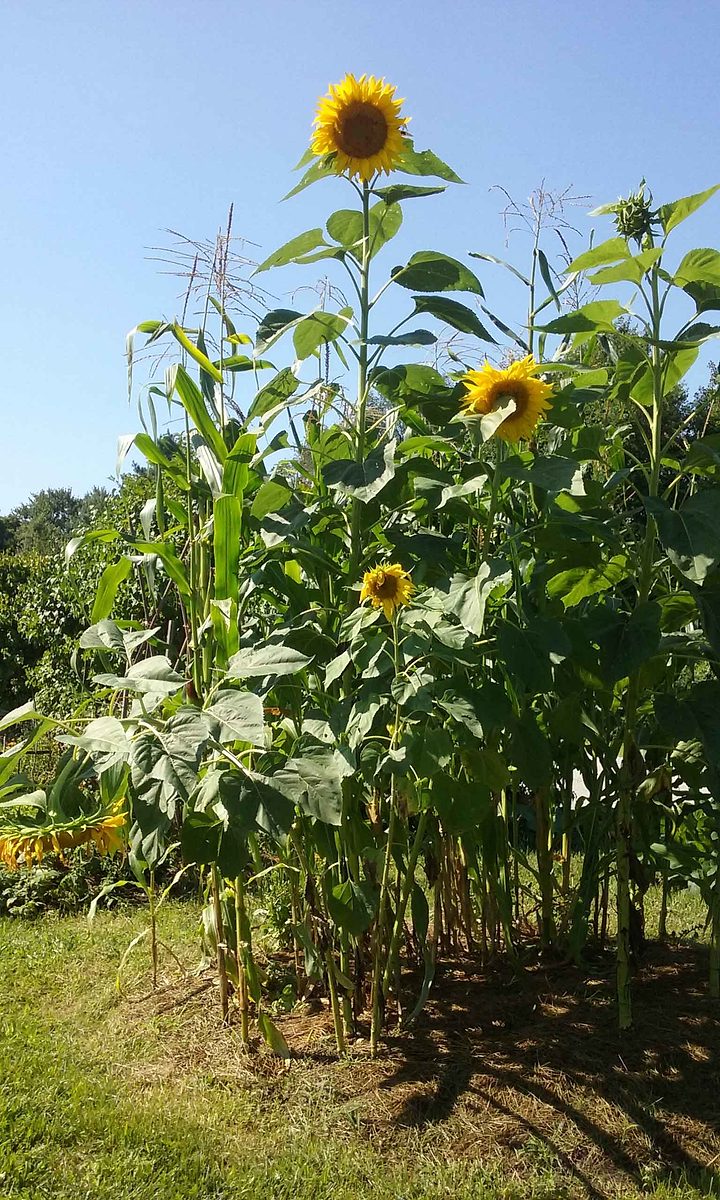Henry’s sunflowers greeted me as I walked the path to the old farmhouse. This is a peaceful place – this house where Henry David Thoreau was born in 1817. He lived here only eight months. The cold summer caused all the crops to fail and his family had to abandon the farm and move to Concord center where his father ran a store. It was difficult making ends meet in those days. Life was hard. The family moved around, to Chelmsford then on to Boston before returning to Concord for good when little Henry was five. So Henry David Thoreau grew up in Concord, though not on this farm where he was born.
Many people are at least somewhat familiar with Henry David Thoreau, most notably known for a small house he built on the shores of Walden Pond where he lived for two years, two months, and two days. But that is another story. This is a story about the farmhouse where the acclaimed Mr. Thoreau “first saw the light in the easternmost of its upper chambers”.1
This old house, whose path to the back door is now lined with glorious sunflowers, was built in 1730. The original owner sold it to his cousin, a deacon’s son, in 1756 who transformed the plain old saltbox farmhouse into a stately property with corner quoins, Georgian doors, and decorative moldings over the windows. Inside, raised panels and carved banisters showed off the prosperity of the farmer. Those were good years for the house. The family lived here until the deacon’s son died in 1813. His wife was granted a widow’s third – also another story – which allowed her to stay in the house. The widow was Henry David Thoreau’s maternal grandmother and that is how he came to be born here. But after the cold summer caused its residents to flee, the lovely house began to fail.
Over the next half century, the house was used as a tenant farm. In 1878 it was removed from its foundation, put on sleds and moved by teams of oxen 300 yards down Virginia Road to its current location. The last private owner of the house died in 1995 and the house was at risk of demolition. But a group of Thoreau disciples screamed “No! We must save this sacred place for it is where our native son was born.”
And thus, with the efforts and determination of so many dedicated people, it happened. The old house was not only saved from being torn down, it was lovingly and painstakingly brought back to its finest days of the mid to late eighteenth century. I was blessed to be hired as a docent to share the history of this house and its occupants, some famous, some obscure. On this late summer day I sit on the back porch and gaze at the tall sunflowers, grateful for Henry David Thoreau and the people he inspired. I smile and agree with Henry’s observation that “Happy we who can bask in this warm September sun.”2
NOTES
1 Ellery Channing, Thoreau The Poet-Naturalist. (Charles E Goodspeed, Boston, 1902) 2 Thoreau, A Week on the Concord and Merrimack Rivers

